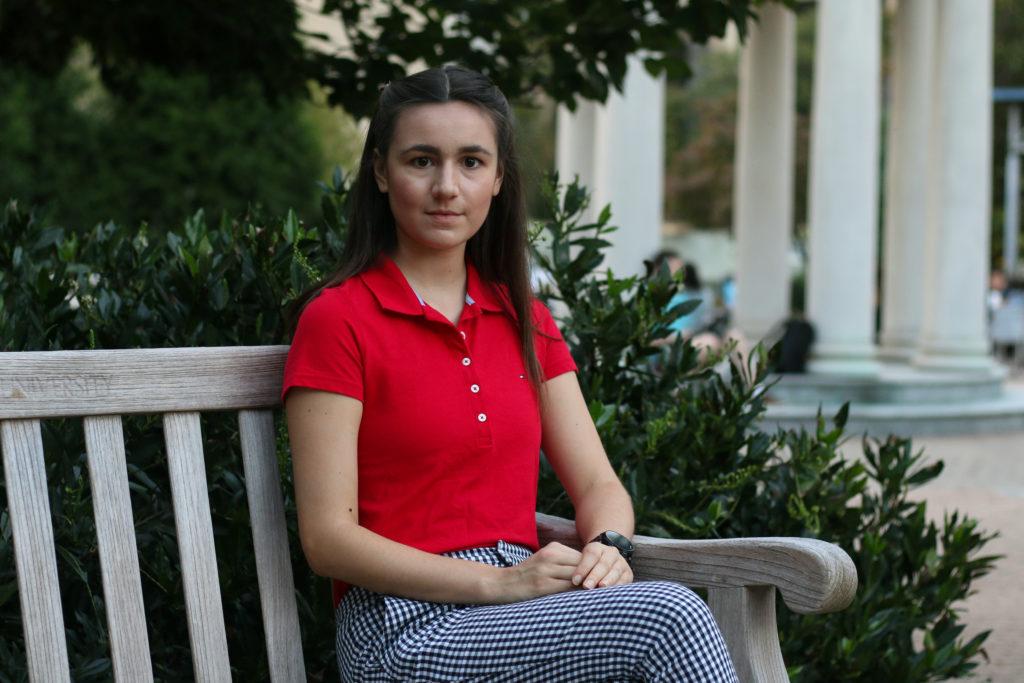Updated: Oct. 1, 2018 at 1:25 p.m.
The Student Association will not defend itself in Student Court about the constitutionality of giving freshmen and first-year senators voting rights.
The court dismissed a lawsuit Tuesday that questioned whether freshmen and first-year graduate senators should be able to vote on bills and resolutions during their second semester in the SA Senate. Darryl Jennings, the court’s chief judge, said that since first-year senators have not yet voted in the senate, the court does not have the power to hear or decide whether something is constitutional before “actions or inactions” have occurred.
“Before this court can address the merits of a challenge, the constitution requires the petitioner demonstrate a valid case and controversy, which the petitioner fails to do,” Jennings wrote in the dismissal. “If the court proceeded here, it would provide an advisory opinion. Guidance through advisement on a particular law will not do.”
Sam Paralikas, the SA’s vice president for judicial and legislative affairs, filed a complaint with the Student Court last month questioning the constitutionality of a widely supported spring referendum that would allow first-year senators to vote during their second semester in the senate. The complaint was based on a 1995 precedent when the court ruled on a nearly identical issue and rejected two referendums that would have granted first-year senators voting rights.
Paralikas said the complaint was a way for the court to determine if freshmen should be allowed to vote, which was not permitted before the referendum. Paralikas’s prosecution would have been a preventative measure to ensure that SA members don’t argue about whether first-year senators should be able to vote in the case of a controversial vote, she said.
Jennings wrote that the court cannot advise the SA on the constitutionality of a referendum unless the new mandate violates the constitution after its implementation. When the complaint was originally filed, the plaintiff asked for the court to determine whether freshmen and first-year voters represent a clear population of students, which, before the referendum, they did not.
“Asking for an advisory opinion will not get the court to dance,” he wrote in the dismissal. “The role of the judiciary is to interpret the constitution and its attendant governing documents. If we proceed down this road prematurely, the separation of powers attached to the tripartite system will be blurred.”
But Paralikas said she was “confused” about why the court determined that no action or inaction had been taken for a hearing. She said the referendum was an appropriate action for the court to permit a hearing.
“We just have different interpretations of the constitution,” she said. “The way I interpret it is that once the student body votes on a referendum, it’s automatically enacted and therefore that is an action that they could take their judicial review against.”
Paralikas said that if the senate votes in the spring to convert freshmen and first-year senators to undergraduate- and graduate-at-large seats, she will “most likely” file another complaint for the same reason as the former complaint – that the converted seats don’t represent a clear constituency.
But she added that the complaint could be “messier” if the court decides to hear the case and reverses the referendum because first-year senators’ positions will likely have already voted on legislation and will have to reverse their vote.
“If I can’t file the complaint until they actually vote on something, or, in comparison, if they are in that conversion, they could have already voted on stuff,” she said. “If they are, we have to go back and we have to re-evaluate everything.”
Yannick Omictin, the SA’s chief of cabinet, initially moved the referendum to a studentwide vote as a freshman senator in March. Omictin said he was surprised that the court dismissed the complaint because the referendum was the action needed to move the complaint to court.
He added that the lawsuit is one step toward officially becoming voting members in the spring. The measure has been introduced in the senate several times over the past 20 years but was repeatedly rejected because senators were hesitant to allow freshmen to vote during their first semester.
“We will not be in the clear until the seats are confirmed,” he said. “It’s in the hands of the senate – if they do it, that will be a big win.”
Hayden Smith contributed reporting.




